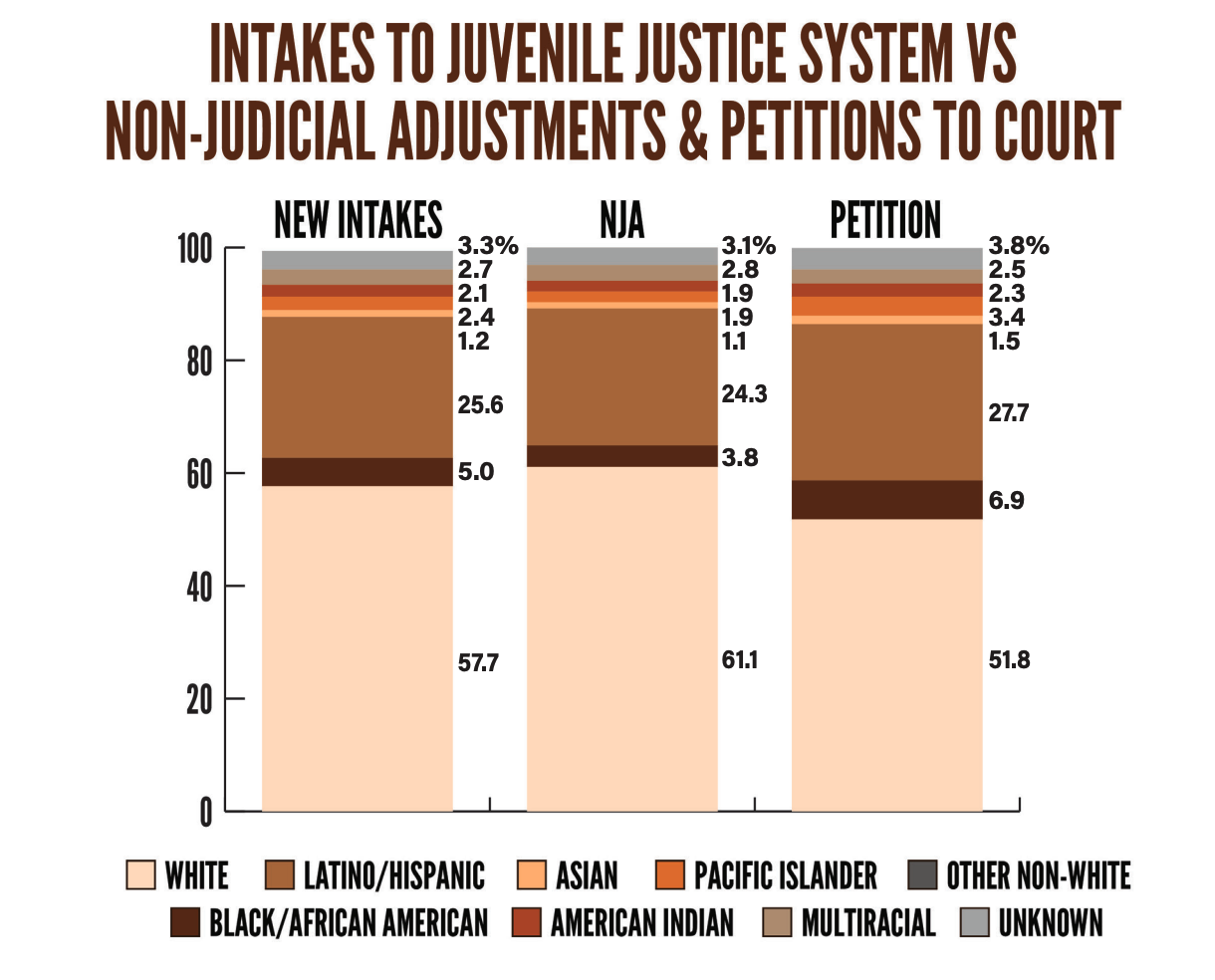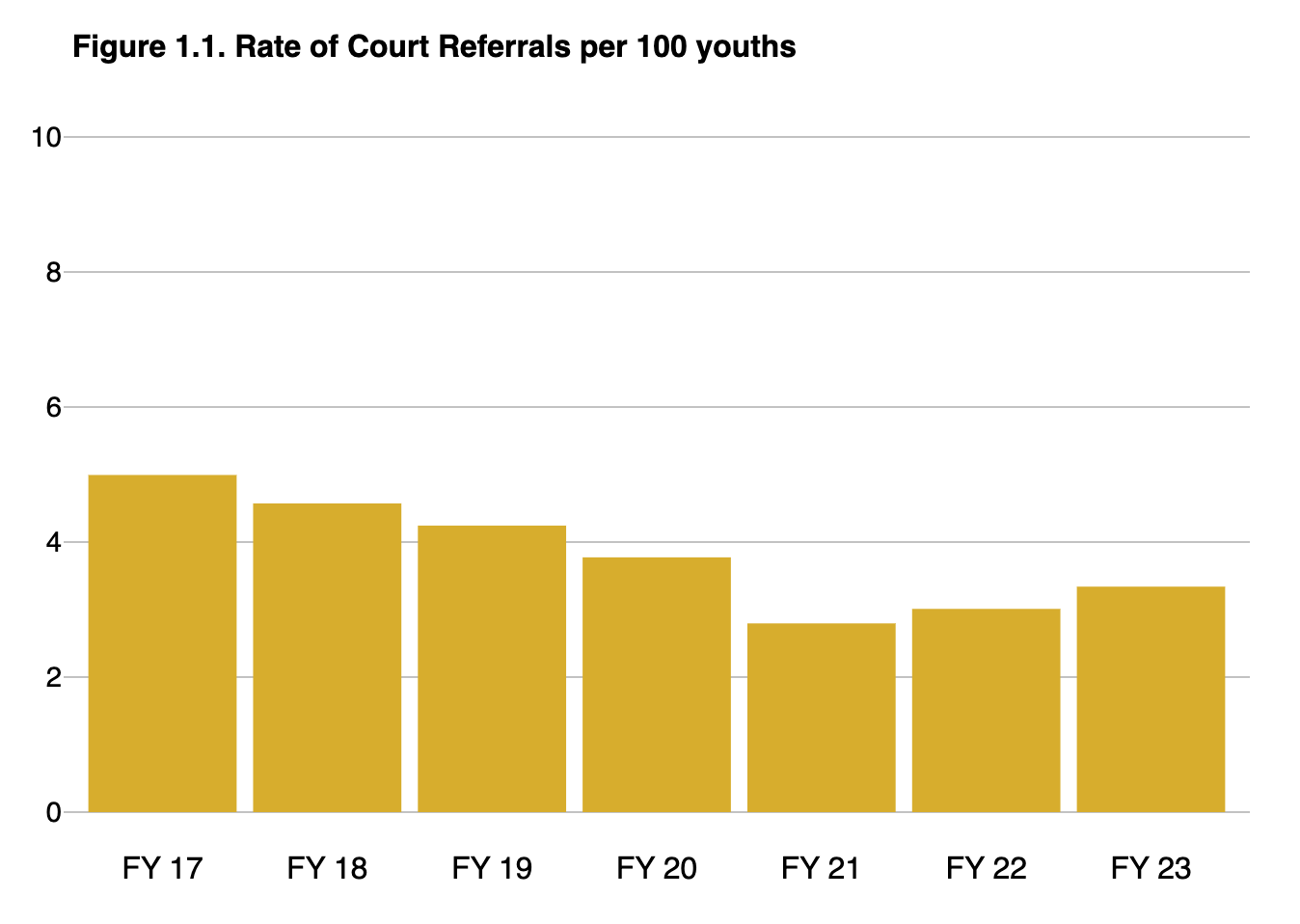Our team at Voices for Utah Children is proud to support juvenile justice reforms in Utah that are more effective and efficient for all involved. Recently, we’ve actively engaged in advocacy for reform since 2016, when state leadership embarked on a full-scale evaluation of Utah’s juvenile justice system at that time.
As the executive, legislative and judicial branches of government convened a wide-ranging group of experienced professionals and system experts, Voices joined with multiple other community-based non-profit organizations to articulate “Guiding Principles for Juvenile Justice Reform in Utah.”
Our number one guiding principle for reform was to “promote the critical role of early, non-criminal-justice intervention in the lives of young people, for the purpose of avoiding future justice involvement.”
This principle leads us to approach juvenile justice policy analysis and advocacy not by asking, “What is wrong with these kids?” but by asking, “What is going on with these kids?”
The vast majority of young people engaged in misconduct are acting out due to underlying issues that have not been addressed, such as:
- Serious childhood trauma such as sexual, physical and emotional abuse, including harms caused by another child;
- Undiagnosed and unsupported learning disabilities or mental health issues;
- Homelessness and housing insecurity;
- Family disruptions resulting in lack of support and supervision, such as substance abuse by primary guardians or absence of caring adults due to refugee or immigration status;
- Food insecurity and other poverty-related challenges; and more.
Why Early Intervention?
Ensuring early intervention is the most cost-effective and productive way to ensure that children never engage in criminal activity to begin with. This is the best path not only for a young person who might have otherwise harmed other people and their own community, but for those who might have been harmed.

(From Utah Juvenile Justice & Youth Services FY2022 Presentation)
Our communities are safest when children don’t act out in the first place. That is one reason that our organization advocates so strenuously for all Utah children to have access to food, shelter, health care and early education opportunities. These are preventative factors.
We also advocate for public policies that engender greater stability in the homes of young people, so they have fewer risk factors for antisocial behavior. Such policies include cash assistance for struggling families with children, access to health care for adults in the household, and help finding and paying for quality childcare so parents can work.
Harshly punishing young people with hundreds of hours of community service, fines they can’t pay, or isolation in a locked detention facility with other troubled children does not cultivate a sense of accountability and remorse.
In fact, over-punishment can actually make children more likely to reoffend, which is terrible for public safety.
Providing early access to interventions for young people who are struggling produces much better results. Harsher penalties also do not actually help those harmed by a youth’s antisocial behavior. A better approach is to ensure that as many young people as possible have their basic needs met, so their reasons for acting out are greatly diminished.
Children Are Not Adults
The juvenile justice system is structured differently than the adult criminal justice system, because children are not the same as adults. Research from the past several decades shows that the brains of most young people do not stop growing and developing until they are in their mid-20s. For this reason, our legal system has chosen to approach juvenile justice differently, with a greater emphasis on intervention and rehabilitation.
Most teenagers get into trouble for something during their formative years. Shoplifting, sexting, experimenting with drugs, getting in physical fights and skipping school are common mistakes made by young people finding their way into adulthood. Penalties for children should take into account that almost every human being does “dumb stuff” while growing up. Over-criminalization of these behaviors do not prevent young people from getting lured into them. Teenagers rarely know the legal penalties for their misconduct, and they lack the judgment to fully weigh how their future will be impacted by their behavior.
Disparities in the System
One serious issue that juvenile justice reform in Utah still has not been able to address, are the dramatic racial disparities that occur at each step of our juvenile justice system.
Research shows that children of color are much more likely to receive harsh penalties for misconduct than their white peers. What is understood as “age appropriate acting out” when a white child does it, is more often interpreted as “evidence of criminal character” when that very same behavior is exhibited by a child or color.

(From Striving for Racial Equity in Utah's Juvenile Justice System, 2020)
We object to policy proposals structured around harsh penalties, because we know those penalties are much more likely to hurt children and families of color, due to persistent racial injustice in our society. We believe that moving forward in a different way offers the best chance to address these disparities.
A Better Way Forward
Not all misconduct can be addressed by low-level interventions. Some children cause serious harm to others. There are children who leave families mourning and in pain. Taking a life, or perpetrating sexual abuse, are serious crimes for which our most serious interventions, including detention and secure care, should be reserved. Those who are hurt by serious offenses deserve real support, such as counseling and financial support, not just dramatic penalties that risk creating public safety issues for others in the future.
We try to advocate for policies that are shaped by the most up-to-date research, expert recommendations and actual data. Sometimes, this information changes, and we must reshape the ways in which we pursue the most positive outcomes for children.

(From 2023 Juvenile Reform Report, System Trends 2023 Juvenile Reform Report, System Trends)
Our state’s own research shows that the “old way” of doing things is unnecessarily expensive, is ineffective at reducing reoffending, and is more likely to engender resentment than remorse. Going backward will not help Utah children. We have to keep moving forward, with new knowledge and best practices, in order to best serve our kids.
If you have questions about this blog post, please contact or anna@utahchildren. Annual Juvenile Reform Reports can be accessed through our state's Commission on Criminal and Juvenile Justice website here.





